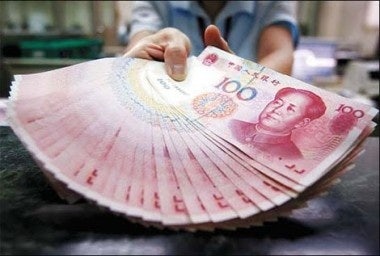British Retailers Buoyant About Increasing Chinese Tourist-Shoppers, But Limitations Remain#

This week, the New York Times covered the gradual internationalization of China's currency, the renminbi (RMB) or yuan, noting that the country has taken several tentative steps towards making the RMB a global currency in recent years, from settling cross-border trade deals in RMB rather than US dollars to allowing foreign companies to sell RMB-denominated bonds in Hong Kong. As Kelvin Lau, an economist at Standard Chartered Bank, told the paper, Beijing's recent moves are "encouraging the internationalization of the renminbi,” adding, "They want to make the Chinese currency a popular currency.”
Considering the impact that Chinese tourist-shoppers are starting to make in shopping meccas like London, it might not be long before the RMB becomes a popular currency among retailers, and more established western brands come under Chinese ownership. According to Oxford University historian Karl Gerth, it's just a matter of time before the increasing spending power of Chinese consumers and companies leads high-street boutiques to stock wads of RMB alongside British Pounds, US Dollars, Japanese Yen, and euros. As Gerth, author of the new book "As China Goes, So Goes the World: How Chinese Consumers Are Transforming Everything," told Britain's Telegraph this week, "Already shops on Bond Street (central London) are accepting renminbi from Chinese tourists and in years to come the tastes and desires of Chinese consumers will have to be at the forefront of every successful shop owner’s commercial considerations."
While it's perhaps unsurprising that British retailers would have to carry stocks of renminbi, as some Chinese shoppers remain fond of carrying cash (though this is changing as more international destinations start to accept China Unionpay cards). Also, a similar phenomenon took place with the Yen as Japanese tourist-shoppers began to flood luxury stores in the 1970s and '80s. But Gerth takes his predictions about the growing influence of China's currency a step further. Though Chinese shoppers are often driven by an advertising-driven desire to emulate Western lifestyles via luxury consumption, says Gerth, "China doesn't simply want to buy Western goods...Chinese want to create internationally competitive brands of their own, and if they can't spread brands which originated in China around the world, the natural alternative is to seek to take over brands which are already established."

What Gerth is saying isn't entirely novel. The global financial crisis spawned no shortage of predictions that cash-rich Chinese companies would essentially scour the globe for weakened Western companies to snap up at bargain prices. But the reality is that we've seen relatively few of such acquisitions actually take place. Aside from a string of high-profile natural resource deals and the acquisition of Volvo by Geely last year, many other potential purchases by Chinese companies -- such as Tengzhong's abortive takeover of Hummer -- failed to materialize. However, in recent months we've seen a handful of consumer-oriented acquisitions again raise the question: What will Chinese companies actually do with the foreign brands they acquire?
One clue is offered by the recent takeover of the beleaguered Italian brand Cerruti by Li & Fung. Immediately taking a China-centric focus for the brand, and noting the immense popularity of the brand among Chinese men, Li & Fung quickly shut down Cerruti's womenswear operations. As Cerruti CEO Florent Perrichon told WWD, "We prefer not to spread ourselves too thin in a field that is highly competitive." If, as Oxford professor Gerth asserts, "Some of the most established brands in the world will come under Chinese ownership in years to come," expect to see their new owners leverage the history and pedigree of their new acquisitions at home, often to the detriment of operations overseas.
With China on path to become the world's largest consumer market within five years, and the world's largest luxury market by 2020 (if not sooner), it's not much of a stretch to assume many takeovers will be done with Chinese -- rather than western -- consumers in mind.